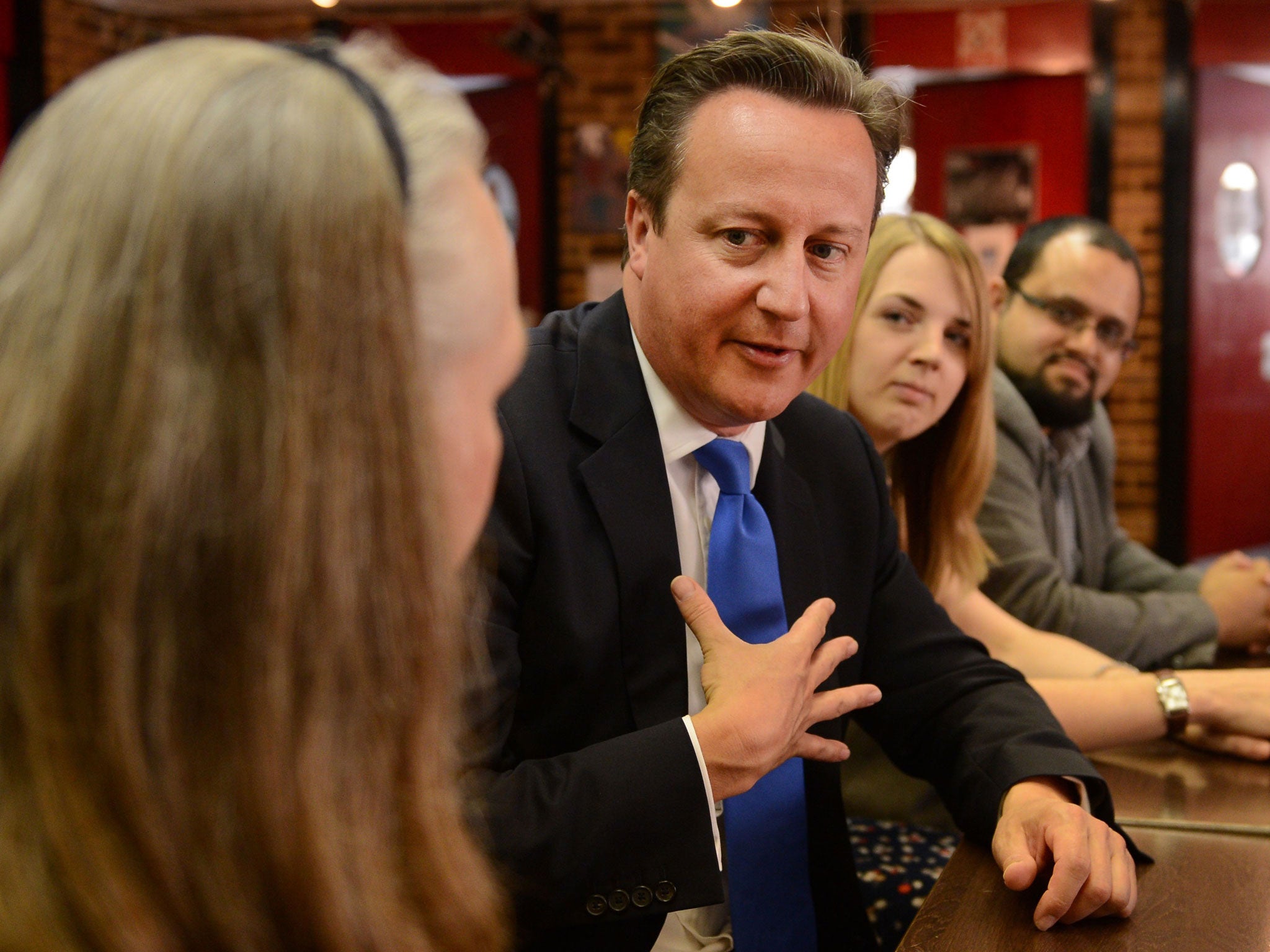This Government doesn't understand technology. The attempt to block porn proves it
Cameron's plan is an unworkable sop to the Tory right

Your support helps us to tell the story
From reproductive rights to climate change to Big Tech, The Independent is on the ground when the story is developing. Whether it's investigating the financials of Elon Musk's pro-Trump PAC or producing our latest documentary, 'The A Word', which shines a light on the American women fighting for reproductive rights, we know how important it is to parse out the facts from the messaging.
At such a critical moment in US history, we need reporters on the ground. Your donation allows us to keep sending journalists to speak to both sides of the story.
The Independent is trusted by Americans across the entire political spectrum. And unlike many other quality news outlets, we choose not to lock Americans out of our reporting and analysis with paywalls. We believe quality journalism should be available to everyone, paid for by those who can afford it.
Your support makes all the difference.The consensus in the software and web development industry is that politicians are simply incapable of “getting” technology. They don't understand the Internet, they don't know how to police it and they are completely clueless as to how to tackle challenges posed by an increasingly online society. Whether it's suggesting that Blackberry Messenger be shut down in response to the 2011 riots or producing a laughably impossible proposal to assign every individual a static IP address, governments never fail to produce reactionary policy in an area they know nothing about.
It's understandable from an electoral sense why Cameron made this speech: "The internet and pornography: Prime Minister calls for action". We are 94 weeks away from the next general election and the right-wing element of the Tory party are bruised from horrible liberal things like equal marriage. This dog-whistle style war on porn would seem like the perfect way to remind the country and his party that he is a Conservative Prime Minister and doesn't agree with this sort of thing.
Cameron suggests that filtering sites at the Internet Service Provider (ISP) level is the answer to helping parents keep their children safe from porn. There are a myriad of problems with this approach. Filters are known to block out things that needn't be blocked and conversely fail to block the things they should. The Prime Minister makes a remarkable promise in his speech regarding the former to "ensure that does not happen". To give such a guarantee is to promise the impossible, no matter how well-intentioned.
The other reason such a tactic is doomed to fail is exactly why efforts to ban The Pirate Bay failed. ISPs can block IP addresses like they did with TPB, but that does not deal with the existence of proxies. Proxies are not expensive bits of kit, rather they can be a few lines of code hosted on a cheap web server. The user chooses to send their request to the proxy which then itself sends a request to the banned server, with the banned material returning via the non-banned proxy server. Of course, ISPs can do their utmost to find these proxies and add them to the blacklist, but as they found with TPB, more spring up in their place.
Cameron asserts that “it should not be the case that technically literate children can just flick the filters off at the click of a mouse without anyone knowing”. They may not be able to flick the filters off, but it’s not too difficult to bypass them.
What is most disingenuous about Cameron’s speech is the direct statement that any opposition to his unworkable proposals amounts to inaction. If he wishes to pursue alternative options that are viable, he could put his ministerial appointments where his mouth is.
He could create a Minister at the Home Office with specific responsibilities for technology, communications and the Internet and give the job to his coalition colleague Dr Julian Huppert MP, the one Parliamentarian who seems to understand technology. Even then, it won’t change the fact that the most effective means of keeping children safe on the Internet is through direct parental guidance. A government e-petition has been set up to this effect and has, at time of writing, gathered over 8,000 signatures.
Instead of opting for the same old reactionary hyperbole that has poisoned the debate on online child protection for years, the Prime Minister had an opportunity to do it differently, informed by technological experts with viable solutions. Cameron and his colleagues have produced ill-considered blunt policy that attempts to deal with youth who are miles more resourceful and technologically literate than they are. The void between technologists and the legislature has never been wider and the need for more engineers in Parliament has clearly never been greater.
Join our commenting forum
Join thought-provoking conversations, follow other Independent readers and see their replies
Comments